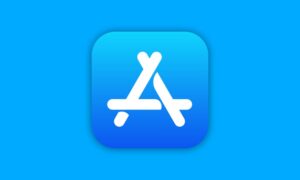Are you ready to catch a glimpse of the future? In today’s fast-paced world, app development has become both an art and a science, constantly pushing the boundaries of what is possible. From mind-bending augmented reality experiences to seamless integration with smart devices, innovation in this field never ceases to amaze us. Join us as we dive into the latest trends and advancements that are shaping the way apps enhance our lives. Buckle up and get ready for a journey through groundbreaking technologies that will leave you inspired and excited for what lies ahead.
What is App Development?
Whether you’re a tech-savvy individual or a business owner, it’s important to stay up-to-date with the latest trends and advancements in app development. By being aware of the ever-changing landscape of mobile apps, you can make informed decisions about which technologies to use for your next project.
Here are some of the latest trends and advancements in app development:
1. Augmented reality (AR) and virtual reality (VR) are becoming more commonplace in mobile apps. AR allows users to interact with digital content in the real world, while VR immerses users in a completely artificial environment. These cutting-edge technologies are being used in a variety of industries, from gaming and entertainment to education and training.
2. Machine learning is being used more frequently to improve the user experience within mobile apps. This technology enables apps to learn from user data and evolve over time without human intervention. Machine learning is already being used by some of the biggest names in the tech industry, including Google, Amazon, and Facebook.
3. App developers are increasingly using serverless computing to build and scale their applications quickly and efficiently. With serverless computing, there is no need to provision or manage servers—everything is taken care of by the cloud provider. This approach can save significant time and money, especially for small businesses or startups with limited resources.
4. Blockchain technology is beginning to be adopted by a growing number of app developers as a secure and transparent way to store, share, and verify digital information. This technology could potentially revolutionize sectors such as healthcare, finance, and logistics.
By staying up-to-date with the latest advances in app development, you can make sure your project takes advantage of the latest cutting-edge technologies and maximize its potential for success.
Examples of Innovative Apps
1. Slack: Slack is a messaging app for teams that allows for real-time communication and collaboration. With Slack, teams can easily share files, images, and videos as well as create and manage to-do lists.
2. Evernote: Evernote is a note-taking app that helps users organize their thoughts and ideas. Evernote provides an intuitive interface that makes it easy to take notes, capture photos and videos, and save web articles for later reading.
3. Dropbox: Dropbox is a file sharing and storage app that makes it easy to sync and share files across devices. With Dropbox, users can access their files from anywhere, on any device.
4. Google Drive: Google Drive is a cloud-based storage app that offers users 15 GB of free storage. Google Drive integrates with other Google products like Gmail and Google Docs, making it a convenient way to store and share files online.
Benefits of Developing an App
An app can help a business in many ways. It can promote and sell products, engage with customers, provide customer service, and much more. In a world where people are constantly on their phones, an app is a great way to reach your target market.
An app can also help you save money. You no longer need to print out coupons or flyers for your customers. You can simply push notifications to their phones with updates and deals. Apps can also help you keep track of inventory and sales so you can make adjustments accordingly.
An app is a great way to reach more customers and promote your business. With the right development team, you can create an app that is tailored to your specific needs and goals.
Different Platforms for Developing Apps
-Native app development platforms: These platforms allow developers to create apps using the native programming language and tools for each operating system. Examples of native app development platforms include XCode for iOS and Android Studio for Android.
-Cross-platform app development platforms: These platforms allow developers to create apps that can be used on multiple operating systems. Examples of cross-platform app development platforms include React Native and Flutter.
Challenges Faced in App Development
There are a few challenges that every app developer faces during the development process. One of the most common challenges is ensuring that the app works properly on all devices. App developers must test their apps on different devices and screen sizes to ensure that users have a positive experience regardless of the device they are using. Another challenge faced by app developers is keeping up with the latest technology trends. Technology changes rapidly and new devices and operating systems are constantly being released. App developers need to stay up-to-date with the latest trends in order to provide users with an innovative and cutting-edge app. One of the biggest challenges faced by app developers is designing an app that is both useful and user-friendly. Users should be able to easily navigate through your app and find the information or tools they are looking for.
Latest Trends in App Development
Technological advancements have always been a hot topic in the ever-changing world of app development. Keeping up with the latest trends is essential for any developer who wants to stay ahead of the curve and create innovative applications.
In recent years, we’ve seen a shift towards artificial intelligence (AI) and machine learning, as well as an increased focus on security and privacy. These are just a few of the many trends that are shaping the future of app development.
As we move into 2020, we can expect to see even more advances in AI and machine learning. Developers will continue to find new ways to use these technologies to create better apps. We can also expect to see more apps that focus on privacy and security, as these issues become increasingly important to users.
So what does all this mean for developers? It’s simple: if you want to stay ahead of the curve, you need to be constantly innovating and experimenting with new technologies. By doing so, you’ll be able to create truly unique applications that stand out from the crowd.
Tips for Best Practices in App Development
When it comes to app development, there are certain best practices that should always be followed in order to create a successful and high-quality product. Below are some tips for best practices in app development:
1. Plan and design your app carefully before starting the development process. This includes creating detailed wireframes and user flows that will serve as a roadmap for the development team.
2. Choose the right technology stack for your app. This includes selecting the right programming language, frameworks, libraries, and tools that will be used during development.
3. Follow a strict code structure and coding conventions throughout the project. This will help to ensure that the code is easy to read and maintain.
4. Perform thorough testing of your app before launching it on the App Store or Google Play Store. This includes beta testing with real users as well as unit and regression testing.
5.Monitor your app’s performance after launch and make sure to address any issues that arise promptly. This includes monitoring crash rates, user feedback, and review scores/ratings.
Conclusion
App development trends continue to evolve as technologies become more complex and offer users greater convenience. There are now many different avenues that developers can explore in order to create an app that meets their own requirements and those of their customers. The tools, frameworks and platforms available allow people with all levels of skill the opportunity to build robust, scalable apps quickly and efficiently. We look forward to seeing what new innovations will be unveiled in the near future.



































